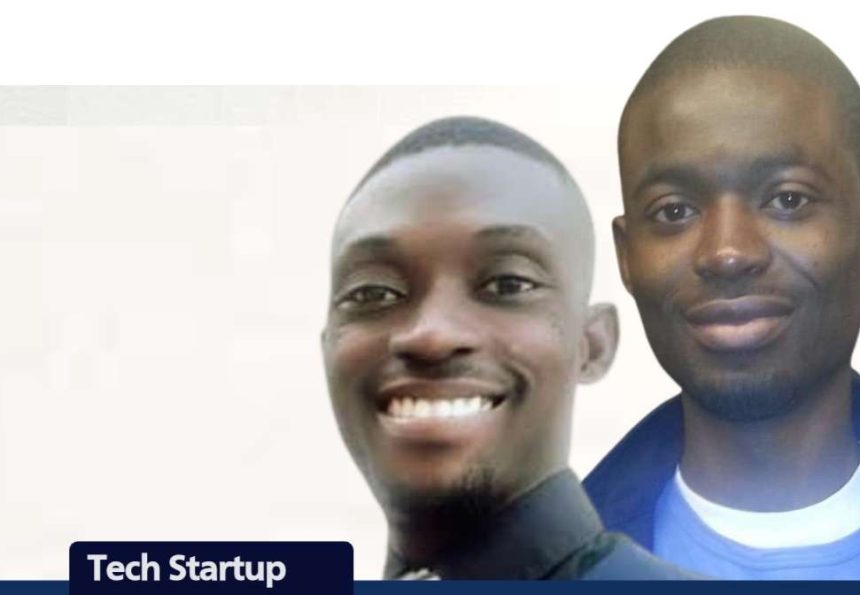In a bold move to rethink how people exchange value, Nigerian tech startup Thrivyx has unveiled FractionalFair, a browser-based platform where time, not money, is the currency.
“Money can be printed. Time cannot,” said Dr. Oluwatobi Adeogun, Thrivyx’s managing director and CEO, announcing the launch in Lagos.
The platform allows users to trade skills and services in 15-, 30- or 60-minute blocks, with every transaction logged on a secure blockchain ledger.
Adeogun calls it “a philosophy for a fairer future,” arguing that trading minutes instead of money “unlocks opportunities that cash alone can’t buy.”
About Thrivyx
Founded in 2021, Thrivyx began as a deep-tech company focused on industrial cybersecurity and infrastructure management.
The Lagos-based startup specializes in Supervisory Control and Data Acquisition (SCADA) systems, complex networks used to monitor and control vital infrastructure such as energy grids, water treatment facilities, and smart-city utilities.
Its secure, cloud-native platform integrates real-time monitoring with advanced cybersecurity features, enabling operators to detect faults instantly and respond to threats before they escalate.
This niche is rapidly expanding: Africa’s industrial IoT market, where SCADA solutions are essential, is projected to grow by over 12 percent annually through 2030, according to Allied Market Research.
Thrivyx has already partnered with regional utility firms to pilot its technology, positioning itself as a key player in safeguarding Africa’s critical infrastructure.
FractionalFair: The New Idea and Product
Building on this technical expertise, Thrivyx is now venturing into the social economy with FractionalFair, an online service that replaces money with time as the medium of exchange.
Unlike traditional barter systems that rely on matching specific goods or skills, FractionalFair lets users assign equal value to their minutes, effectively creating a universal “time currency.”
Accessible entirely through a web browser, the platform requires no downloads or specialized equipment, lowering the entry barrier for individuals and community groups alike.
Adeogun describes it as “a technology-driven movement toward fairness and shared prosperity,” reflecting a shift from purely industrial solutions to consumer-focused innovation.
How It Works
Using FractionalFair begins with creating a personal profile, where members outline the services or skills they can offer, ranging from tutoring and translation to graphic design or gardening. Users earn time credits when they provide a service and spend those credits when they receive help from others.
Exchanges are measured in 15-, 30-, or 60-minute blocks, and every transaction is permanently recorded on a blockchain ledger to ensure security, transparency, and accountability.
This decentralized record-keeping means that no single party can alter or dispute completed exchanges.
For example, a user who wants a half-hour of French conversation practice might “pay” by offering 30 minutes of copywriting, creating a balanced trade without any financial transaction.
Plans for Next Moves
Thrivyx aims to roll out FractionalFair in Nigeria’s major urban hubs, Lagos, Abuja, and Port Harcourt, within the next 12 months, followed by expansion into other African markets and eventually Europe and North America.
The company is currently in discussions with local NGOs, vocational training centers, and educational institutions to embed FractionalFair into community development and skill-building programs.
Although Thrivyx has not disclosed its funding figures, it anticipates quarterly user growth of 20–30 percent during the first year, driven by partnerships with freelance platforms and coworking networks.
Adeogun notes that pilot programs will collect feedback to refine user experience and ensure regulatory compliance across different regions.
Why It Matters
Globally, alternative economies that value time over money have gained traction as people look for fairer ways to trade skills and build community. The World Bank estimates that nearly 1.4 billion adults worldwide remain unbanked, limiting their access to conventional financial systems.
Time-banking initiatives, already active in countries like Japan, Spain, and the United States, have shown that valuing hours rather than cash can strengthen social ties and reduce economic barriers.
By integrating blockchain for secure, scalable record-keeping, FractionalFair brings a cutting-edge digital layer to this proven concept.
“This is more than a product, it’s a societal shift,” Adeogun said.
If widely adopted, the platform could offer communities a practical tool to counter economic inequality, foster mutual aid, and create opportunities beyond the reach of traditional cash-based economies.
Talking Point
Thrivyx’s FractionalFair offers a bold alternative to cash economies, letting people trade time instead of money while recording every exchange on a secure blockchain. Its strengths include lower barriers for the unbanked, equal valuation of everyone’s hours, and easy web access without special software.
However, time isn’t truly equal, an hour of expert medical advice and an hour of tutoring differ in market value, so balancing perceived worth could be tricky.
The platform also depends on digital literacy, stable internet, and clear rules on taxation and data privacy, which may be uneven in Nigeria and beyond. Innovative and community-focused, FractionalFair must overcome these practical and regulatory hurdles to fulfill its promise of fair, scalable value exchange.






